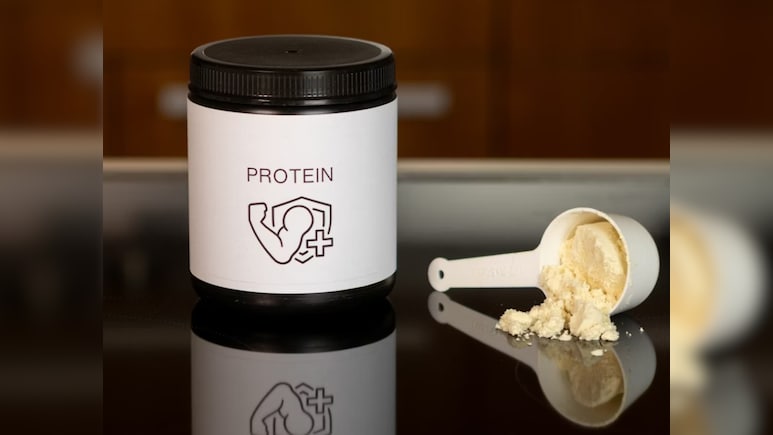
- Over two-thirds of tested protein powders exceeded the daily lead safety limit of 0.5 micrograms
- Plant-based protein powders contained nine times more lead than dairy-based proteins on average
- Top lead-contaminated products included Naked Nutrition Vegan Mass Gainer and Huel Black Edition
Protein supplements are super popular these days, but an alarming report has revealed that many protein powders and shakes contain high levels of lead, a toxic metal that can cause serious health issues. Consumer Reports recently examined several top-selling protein powders and ready-to-drink shakes in the US for the presence of heavy metals, including lead. Out of the 23 products tested, researchers found that over two-thirds contained more lead in a single serving than the organisation's recommended daily safety limit of 0.5 micrograms.
"Protein powders and shakes have become immensely popular and are part of a daily routine for many people who are focused on consuming more protein in their diet. Our tests found that toxic heavy metal contamination in protein supplements is widespread and has worsened since we first analyzed these products 15 years ago," Consumer Reports, said in a news release.
The report said that plant-based protein products contain, on average, nine times more lead than dairy proteins like whey and twice as much as beef-based products. While dairy-based proteins had the lowest lead levels, half of the tested products still had high enough contamination to warrant caution against daily use.
The protein products with the highest lead levels were:
- Naked Nutrition Vegan Mass Gainer (7.7 mcg)
- Huel Black Edition, Chocolate (6.31 mcg)
- Garden of Life Sport Organic Plant-Based Protein, Vanilla (2.76 mcg)
- Momentous 100% Plant Protein, Chocolate Flavor (2.33 mcg)
Tunde Akinleye, the Consumer Reports food safety researcher who led the testing project, said the average lead level is higher than it was 15 years ago and that fewer products had undetectable amounts of lead. Experts suggest that frequent users consider reducing their intake since the potential health risks may outweigh the benefits.
"There's no reason to panic if you've been using any of the products we tested, or if you take protein supplements generally. Many of these powders are fine to have occasionally, and even those with the highest lead levels are far below the concentration needed to cause immediate harm," Consumer Reports said.
The Protein Boom
The protein market has exploded in recent years, with protein becoming a key ingredient in various products, from breakfast foods to snacks and sodas. According to estimates, the number of high-protein products has quadrupled between 2013 and 2024, with the whey protein market valued at $5-10 billion.
However, concerns arise as some protein products, especially plant-based ones, contain heavy metals like lead and cadmium. A report by the Clean Label Project also found that plant-based powders contain more lead than whey-based products, and chocolate-flavoured powders have higher levels of lead and cadmium than vanilla-flavoured ones.
How dangerous is it to consume lead?
Lead consumption can be toxic and pose serious health risks, especially with prolonged exposure. According to Dr Rose Goldman, associate professor of medicine at Cambridge Health Alliance, while no amount of lead is safe, the real concern lies in ongoing consumption or high-dose exposure, USA Today reported. Pregnant individuals and children are particularly vulnerable, as lead exposure can lead to neurological problems, learning delays, and behavioral issues.
Chronic lead exposure is also associated with various health issues in adults, including immune system suppression, reproductive problems, kidney damage, and high blood pressure.
According to Harvard Health, the recommended dietary allowance (RDA) for protein is 0.8 grams per kilogram of body weight, or about 0.36 grams per pound. This is the minimum amount needed to meet basic nutritional needs and maintain overall health.
Common and healthy sources of protein include foods like tuna, salmon, haddock, trout, turkey, chicken, Greek yogurt, and various types of beans.
Track Latest News Live on NDTV.com and get news updates from India and around the world

